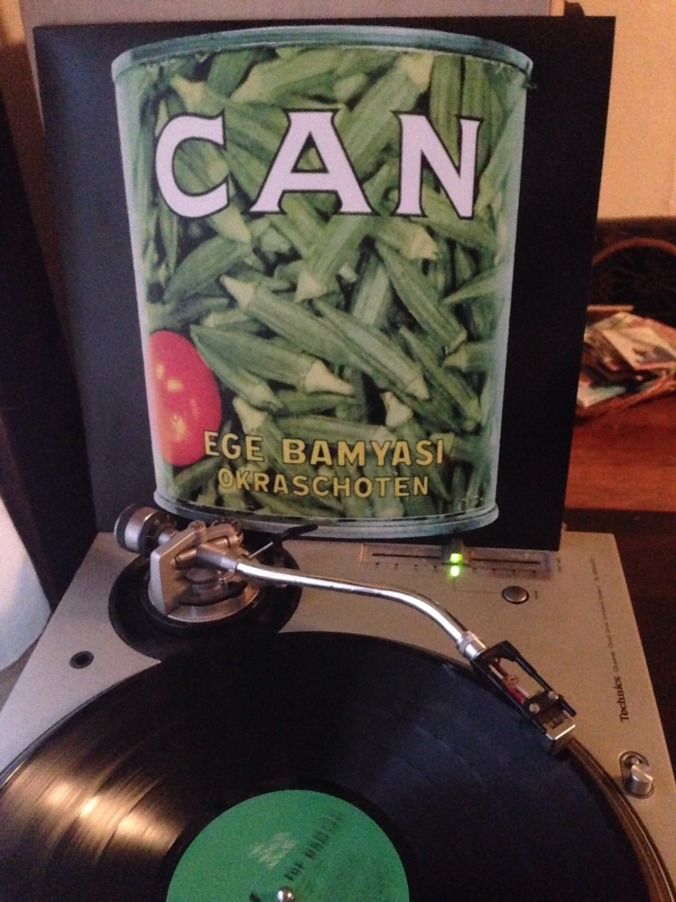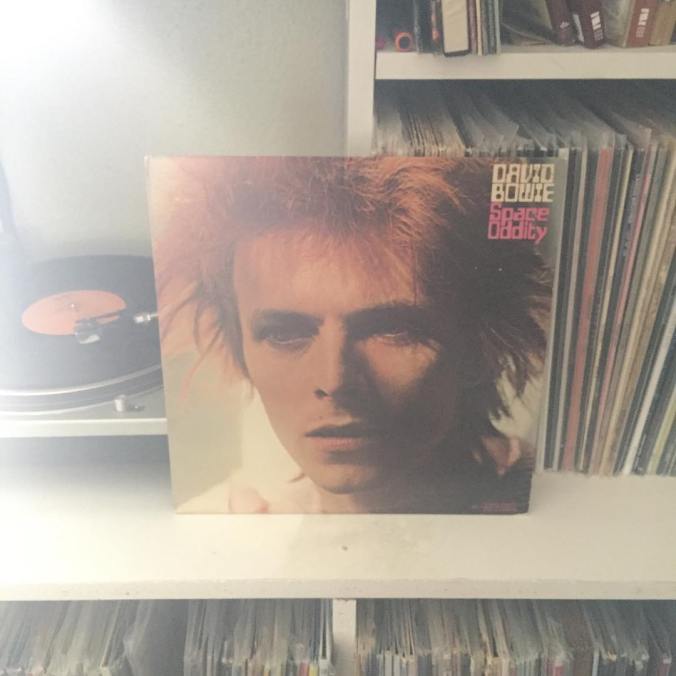
Because friends, there have been terrabytes written on their importance and influence.
The lion’s share of that code is occupied with musings on this album.

I’ve never heard After Bathing at Baxter’s, the album between Jefferson Airplane’s Surrealistic Pillow and Crown of Creation, but I hear that it was a marked departure from the folksy noodling on Surrealistic Pillow in favor of for straightforward rock. But, one rock album must have been enough for them, because Crown of Creation is nowhere near the acid rock fest you might expect from Jefferson Airplane’s reputation (or the album cover–they’re inside of a nuclear blast! Come on!).
If the 1s and 0s used to encode written text on the internet were limited resources, then those specifically allocated for writing about Can (the rock face of krautrock) would be in short supply.
As I mentioned earlier, Embryonic was the first Lips record I ever heard. Admittedly, it’s hardly the most conventional place to start with their expansive discography–far removed from Yoshimi’s space folk and The Soft Bulletin’s wide eyed optimism, and even further from the trippy drug punk from the earliest days.

Space Oddity is not David Bowie’s first album, but it is the first Bowie album anyone cares about.
Its title track, with its tragic astronaut and hand clap coda is still well known, and is still the first song anyone thinks of when they think of Bowie. This album would be notable even if just for its single, but the amazing thing is that the rest of the album doesn’t dwell in its shadow.
Eric Clapton has said that towards the its existence, Cream’s live shows became competitions to see who could outdo one another. For all of the excitement and electricity on display here, the three egos are audibly firing on all cylinders.
It’s not rare for a record company to release a compilation after one of their best selling groups break up. What is rare is for a record company to release a compilation featuring no singles, which is exactly what happened here.
Cream followed up their 1967 masterpiece with this double album, which featured a disc of live recordings, and, strangely, zero Clapton compositions. But what it lacks in Clapton, it makes up for in scope. Continue reading
I’ve purchased, received, and installed my new phono cartridge, and I can now listen to records without the very real possibility of damaging them.
And, the first record onto the platter is Cream’s 1967 sophomore release, Disreali Gears, a masterful work of psychedelic blues that dominated rock and roll in the late 60s (see also: The Doors, The Jimi Hendrix Experience, Pink Floyd, Steppenwolf, etc). There’s a whole mess of classic tracks on this record, including the still-ubiquitous Sunshine of Your Love, as well as mournful rocker World of Pain, bluesy opener Strange Brew, and psychedelic epic Tales of Brave Ulysses. Also of note is the ultra-psych SWLABR, an acronym for “She Walks Like a Bearded Rainbow” (this was 1967, remember). There’s also the blues traditionalism of Take It Back, and the psych-humorist pieces Blue Condition and A Mother’s Lament which close each side.
A lot happened between Turn! Turn! Turn! and Fifth Dimension. The primary songwriter left, Bob Dylan betrayed folk music, and the Beatles released Rain, which some argue was the first proper psychedelic song. The Byrds must have heard that single (and famously, John Coltrane’s India) and perked up, because on their third album (which was released before Revolver), the group adapts their California folk rock to accommodate seemingly unnatural source material (Mr. Spaceman, Eight Miles High), untraditional chord changes (What’s Happening?!?!), and what would later be referred to by music critics with the term “guitar freakouts” (I See You).